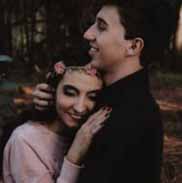AP Psychology Chapter 13: Psychological Therapies – Flashcards
Unlock all answers in this set
Unlock answersquestion
Therapy
answer
treatment methods aimed at making people feel better and function more effectively
question
Psychotherapy
answer
therapy for mental disorders in which a person with a problem talks with a psychological professional
question
Biomedical Therapy
answer
Therapy for mental disorders where a person with a problem is treated with biological or medical methods
question
Insight Therapies
answer
therapies where the main goal is helping people gain insight with respect to their behavior, thoughts, and feelings
question
Action Therapy
answer
therapy where the main goal is to change disordered or inappropriate behavior directly
question
Psychoanalysis
answer
Insight therapy based on the theory of freud, emphasizing the revealing of unconscious conflicts
question
manifest content
answer
the actual content of one's dream
question
latent content
answer
the symbolic or hidden meaning of a dream
question
free association
answer
psychoanalytic technique where a patient was encouraged to talk about anything that came to mind without fear of negative evaluations
question
resistance
answer
occurring when a patient becomes reluctant to talk about a certain topic, either changing the subject or becoming silent
question
Transference
answer
in psychoanalysis, the tendency for a patient or client to project positive or negative feelings for important people from the past onto the therapists
question
Directive
answer
therapy where the therapist actively gives interpretations of a client's statements and may suggest certain behavior or actions
question
Psychodynamic Therapy
answer
a newer and more general term for therapies based on psychoanalysis with an emphasis on transference, shorter treatment times, and a more direct therapeutic approach
question
Nondirective
answer
therapy style where the therapist remains neutral and doesnt interpret or take direct actions, just listens to the client talk
question
person-centered therapy
answer
patient does all the talking, therapist listens
question
reflection
answer
therapist restates what the client says rather than interpreting the statements
question
authenticity
answer
the genuine, open, and honest response of the therapist to the client
question
Gestalt Therapy
answer
form of directive insight therapy where the therapist helps clients to accept all parts of their feelings and subjective experiences, using leading questions and planned experiences such as role playing
question
behavior therapies
answer
action therapies based on the principles of classical and operant conditioning aimed at changing disordered behavior without concern for the original causes of such behaviors
question
behavior modification
answer
the use of learning techniques to modify or change undesirable behavior and increase desirable behavior
question
systematic desensitization
answer
behavior technique to treat phobias, client is asked to make a list of ordered fears and taught to relax while concentrating on those fears
question
aversion therapy
answer
undesirable behavior is paired with an aversive stimulus to reduce the frequency of the behavior
question
flooding
answer
treats phobias, person with the phobias intensely exposed to the fear-provoking situation or object
question
modeling
answer
learning through the observation and limitation of others
question
participant modeling
answer
model demonstrates the desired behavior in a step-by-step, gradual process while the client is encouraged to imitate the model
question
contingency contract
answer
formal, written agreement between the therapist and client, where goals for behavioral change are clearly stated
question
Cognitive therapy
answer
therapy that focuses on helping clients recognize distortions in their thinking and replace distorted, unrealistic beliefs with more realistic, helpful thoughts
question
cognitive-behavioral therapy (CBT)
answer
goal is to help clients overcome problems by learning to think more rationally and logically
question
Rational-Emotive Behavior Therapy (REBT)
answer
cognitive-behavioral therapy where clients are directly challenged in their irrational beliefs and helped to restructure their thinking into more rational belief statements
question
Electroconvulsive Therapy (ECT)
answer
treats severe depression, where electrodes are placed on either or both sides of someone's head and an electric current is passed through the electrodes that is so strong, it can cause a seizure or a convulsion
question
Psychosugery
answer
surgery performed on brain tissue to relieve or control severe psychological disorders
question
prefrontal lobotomy
answer
connections of the prefrontal lobes of the brain to the rear portions are severed
question
bilateral cingulotomy
answer
electrode wire is inserted to the cingulated gyrus are of the brain with guidance to destroy that area of brain tissue with an electrical current



